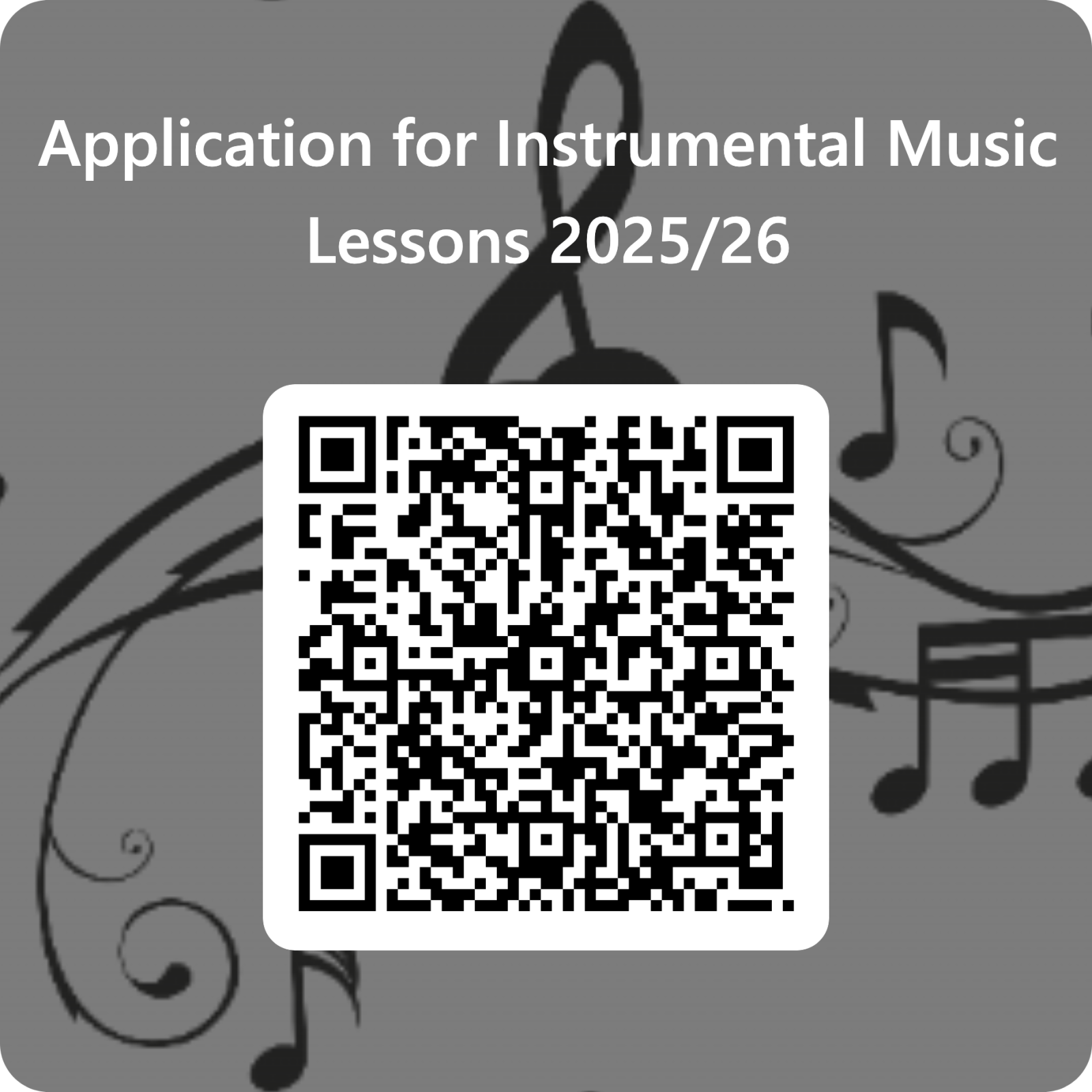Music
Music gives a soul to the universe, wings to the mind, flight to the imagination and life to everything.
Plato
Nearly everyone enjoys music whether by listening to it, creating it or performing it. Studying music helps to develop skills such as creativity, imagination and intellectual curiosity that can be applied in other subjects.
Our aim is to engage students in genuine music-making. All music lessons focus on performing, composing and listening to music, teaching our students the necessary skills and concepts to make music with confidence and enthusiasm, inspiring our students to develop a deep love of music and develop their talents as musicians. Using their voices, instruments and technology, we explore a range of musical styles and cultures.
Want to find out more?
If you wish to find out more about Music at St George’s please feel free to contact Mr Allen at a.allen@stgeorgesrc.org
KS3
Students in Key Stage 3 explore a wide range of musical styles, key artists and musical features, developing a rich understanding how particular music is constructed. Lessons focus on practical music making using a variety of instruments, including keyboards, ukuleles, guitars, djembe and samba drums and singing. Students are actively encouraged to explore each topic through performing and are encouraged to create their own, through composing.
Topics covered in Year 7 include samba music, singing, keyboard skills and the instruments of the orchestra through examination of Saint-Saen’s ‘Carnival of the Animals’.
Topics covered in Year 8 include djembe drumming, RAP and Hip Hop, gospel music and film music.
Topics covered in Year 9 include Jazz, ‘play like a pro’ and song writing.
Assessments
Students are assessed at the end of each topic on their performing, composing and listening skills and all performances are recorded.
Homework
Homework is set in every Key Stage 3 Music lesson and is designed to extend and consolidate learning taking place in the classroom. It is expected to be completed for the following lesson. All homework is uploaded to Show My Homework.
Useful links for help with homework:
https://www.bbc.co.uk/bitesize/subjects/zmsvr82
KS4
Music at Key Stage 4 is an increasingly popular option choice at St George’s School. Students have the opportunity to choose to study the Edexcel GCSE Music or Rock School Level 2 Music Technology. Students who study GCSE Music or Music Technology are provided with free instrumental lessons.
Edexcel GCSE Music
The GCSE course focuses on three components, performing (30%), composing (30%) and listening and appraising (40%).
The performing and composing components of the course take place under controlled conditions and students must be attending regular instrumental/voice lesson in order to achieve well.
The listening and appraising component is a 1 hour 45-minute written examination, taken at the end of Year 11. The examination will test the students’ ability to respond to extracts of music, studied during the course.
In addition to instrumental/voice lessons, we also advise students to ensure that they belong to at least one musical ensemble e.g. choir, orchestra or rock school. The skills developed in these activities will benefit students in all areas of the GCSE Music Course.
Rock School Level 2 Certificate in Music Technology for Music Practitioners
The Rock School Music Practitioners qualifications are for Learners who want to develop their skills in the core elements of the Music Industry. These fully accredited qualifications are a real alternative for Learners who prefer a 'hands-on' approach to learning.
The qualifications are developed with Access to Music and industry professionals so that they are relevant to the current dynamics of the Music Industry. Music Practitioners qualifications are uniquely designed to have one core unit and an expansive choice of optional units in order to build a practical qualification that is specifically tailored to the Learner's strengths.
Homework
Homework is set in every Key Stage 4 Music lesson. It is designed to extend and consolidate learning. It will frequently involve learning facts about the set works and developing key skills in preparation for the externally assessed components of each course.
Useful links and Revision Guides
http://www.bbc.co.uk/schools/gcsebitesize/music/
The textbooks we use are produced by Pearson.
- Edexcel GCSE (9-1) Music Student Book
- Edexcel GCSE (9-1) Anthology of Music
- Edexcel GCSE Music Revision Guide
KS5
Students studying music at Key Stage 5 are able to choose either A Level Music or Rock School Level 3 Subsidiary Diploma in Music Technology. Students who study A Level Music or Music Technology are provided with free instrumental lessons.
A Level Music
A level Music at St George’s offers a vigorous and academic syllabus to prepare students for university study. Students must achieve a 6 at GCSE in order to take this subject onto A level where we follow the Eduqas A Level Music Course.
The A Level course offers a range of music experience including solo or ensemble performance, composition and analysis. Students can choose whether to specialise in performance or composition. Their specialised skill will have a 35% weighting with the other skill having a 25% weighting on their overall grade. Musical analysis (40%) is assessed in a 2 hour 15 minutes written examination at the end of Year 13 and examines students on their knowledge and understanding of specific areas of study.
There is one compulsory area of study – The Western Classical Tradition (The Development of the Symphony 1750 – 1900). The remaining areas of study are chosen with the cohort in mind from the choices below:
Rock and Pop Into the Twentieth Century
Musical Theatre Into the Twenty-first Century
Jazz
Homework
Students studying A Level music will receive at least two homework tasks every week, in addition to independent study and instrumental practice. In order to prepare them for the terminal exam paper - the homework tasks will include harmony work, learning music vocabulary, revising key facts about the set works and completing exam-style questions.
Rock School Level 3 Subsidiary Diplomas in Music Technology
The RSL3 Subsidiary Diploma continues to develop the technical skills gained at Level 2 and provided a detailed insight into the music industry and potential career paths. It offers greater flexibility and enables the students to develop skills in a practical and vocational context. All students are actively encouraged to develop their understanding of Logic Pro X and professional recording techniques through the use of our suite of MACs and recording studio.
Extra-Curricular Music
Extra-curricular music at St. George's is thriving with a range of musical activities throughout the school day.
Orchestra: Tuesday lunchtime
Open to all musicians, of all abilities.
Performs regularly throughout the school year, including masses and liturgies and supporting the annual school musical.
Choir: Wednesday lunchtime
Open to all.
Performs regularly in school and at venues across London including the Royal Albert Hall, as part of the BBC Proms, Wembley Arena, Southbank Centre and on BBC Songs of Praise.
Rock School: Thursday after school (3:30 - 5:30pm)
Open to all. Form a band and perform songs in a range of styles or write an original song.
Music Tech Club: Every morning from 8am
Develop your music tech skills and learn about sequencing, recording and music production
Music Theory Club
Learn the fundamentals of music theory
Instrumental Lessons
Please scan the QR Code with your phone or tablet or if on a computer click the link below to apply for Instrumental Lessons for Year 2023 -2024

Apply for Instrumental Lessons
Careers
Studying music or music technology at A Level provides a strong foundation for the further study of music at a university or conservatoire. In addition to leading to a music degree, studying music at A Level can open doors to a range of education and employment pathways, both in the music and creative industries and beyond. Music is a highly regarded academic subject giving students the unique combination of both academic study and creative opportunities, with students going on to study medicine, physics, languages, and many other disciplines.
The study of Music and Music Technology at A Level involves written analytical, practical and social/ personal skills such as:
- Independent learning and having to be disciplined about practice
- Team working particularly if you are involved in weekly groups or ensembles, concerts or performances
- Performance and presentation skills (useful for any career)
- Listening skills, which are highly developed in musicians as it is an integral part of the course
- Analytical and essay-writing skills
- Confidence and self-esteem, which has a knock-on effect in all areas of life and learning
- Creativity and self-expression, helping to think differently and harness the power of their imagination











